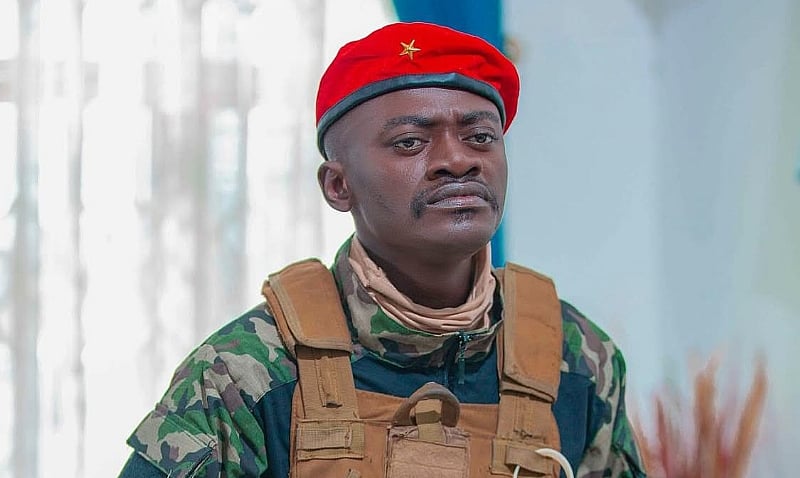Kwadwo Nkansah, the Kumawood actor and producer better known as Lil Win, has publicly voiced his disappointment over the perceived media blackout of his latest film, “Captain Ibrahim Traoré: The Last African Hero.” In a video posted on social media following the film’s second screening in Sunyani, Lil Win expressed his frustration with Ghanaian media outlets, accusing them of deliberately ignoring his project despite its international recognition. Standing beside a 2024 RAM 1500 truck adorned with movie posters, he claimed to have monitored major entertainment programs over a weekend period and found no mention of his film. This perceived snub, particularly in light of the film’s nomination for Best Movie in Africa at the Switzerland Festival Awards, has fueled Lil Win’s belief that his work is being unjustly overlooked within his own country.
The crux of Lil Win’s complaint centers on the apparent disconnect between the international acclaim his film has garnered and the lack of attention it has received from Ghanaian media. He finds it perplexing that a film nominated for a prestigious international award has been virtually ignored by local television stations and entertainment programs. This perceived lack of support, especially given the film’s premiere screenings in Kumasi and Sunyani, has left Lil Win questioning the motivations of the Ghanaian media and their commitment to promoting local talent. The actor’s frustration is palpable as he contrasts the international recognition with the apparent indifference from his own countrymen.
Lil Win’s frustration is further compounded by the film’s subject matter and its potential to inspire. “Captain Ibrahim Traoré: The Last African Hero” draws inspiration from the young Burkinabe leader, Captain Ibrahim Traoré, a figure who embodies a new generation of African leadership. By choosing to tell this story, Lil Win aims to showcase a positive narrative of African resilience and self-determination. The perceived media blackout, therefore, not only undermines Lil Win’s artistic efforts but also potentially deprives Ghanaian audiences of a film that could spark important conversations about leadership, change, and African identity. The silence from the media, in Lil Win’s view, represents a missed opportunity to celebrate and promote a positive portrayal of African leadership.
The actor’s social media outburst highlights a broader issue within the Ghanaian entertainment industry: the challenges faced by local artists in gaining recognition and support from national media platforms. While the reasons for this perceived neglect are complex and multifaceted, Lil Win’s experience suggests a possible bias towards international content or a lack of appreciation for locally produced films, particularly those originating from the Kumawood industry, which is often perceived as less mainstream than other Ghanaian cinema. This perceived bias, whether intentional or unintentional, creates a significant hurdle for artists like Lil Win who are striving to gain national and international recognition for their work.
The implications of this perceived media bias extend beyond individual artists. The lack of support for local productions can stifle the growth of the Ghanaian film industry as a whole. If filmmakers struggle to gain recognition and exposure for their work, it becomes increasingly difficult to secure funding for future projects, attract talented individuals to the industry, and cultivate a thriving creative ecosystem. Lil Win’s experience serves as a cautionary tale, highlighting the need for greater support and investment in local talent and the importance of fostering a media landscape that celebrates and promotes Ghanaian creativity.
Ultimately, Lil Win’s public expression of frustration is not simply a personal grievance but a call for change. He is advocating for a more equitable and supportive media environment that recognizes and celebrates the contributions of Ghanaian artists. His experience with “Captain Ibrahim Traoré: The Last African Hero” underscores the need for greater dialogue within the industry about how to bridge the gap between local productions and national media platforms. It calls for a critical examination of the factors that contribute to the perceived neglect of local talent and the implementation of strategies to ensure that Ghanaian artists receive the recognition and support they deserve. The future of the Ghanaian film industry, and its ability to thrive on both a national and international stage, depends on it.


